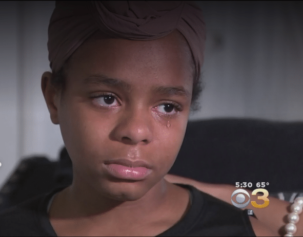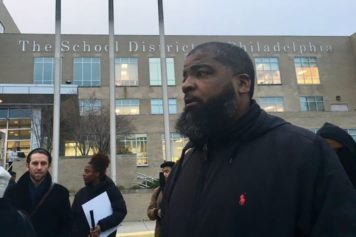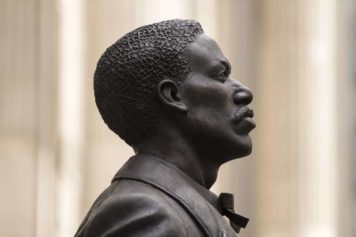
Philadelphia, the poorest big city in the United States, is regaining control over its school system from a state-controlled commission. (Photo: Pixabay)
After 16 years, Philadelphia is retaking control of its public schools from the state government. For the eighth-largest school district in the nation, the news is encouraging, as local control brings with it the promise of accountability, equity, and a more effective educational system for its children. For majority Black and Brown school districts such as Philadelphia, community control is a longstanding issue with racial implications, reflecting a history of struggle against what some think of as a neocolonial education. Specifically, white lawmakers and policymakers in the state capital control the education of Black children and dictate the terms — including inequitable school funding, criminalization and profiteering — without community participation or democratic governance.
Philadelphia Mayor Jim Kenney announced he will replace the Philadelphia School Reform Commission with a school board he will appoint, subject to approval by the city council. “The District is now in a situation in which it has already made painful cuts and one of its two primary funders, the Commonwealth, is mired in budget stalemates. This makes the other major funder, the City of Philadelphia, the only realistic source of substantial new funding for the School District,” said a report outlining the city’s proposal. “Mayor Kenney believes that the City can and must commit to this investment to protect and accelerate the District’s progress. In return, Philadelphians deserve the greater accountability which local control will provide.”
According to a report from the Center for American Progress, large school districts under local mayoral control — such as Boston, New York and Washington — have experienced improvements in student performance, lower administrative costs, a more strategic use of resources, and lower teacher-to-student ratios. According to the organization, mayoral-led school systems focus on the broader requisites of effective teaching and learning, and tend to enjoy “investment in teaching staff, more spending on instruction, smaller student-teacher ratios, a greater percentage of resources allocated for K-12 student support, a larger percentage of revenue from state sources, and a smaller percentage of funding from local sources.” Mayoral control of education in New York has led to a 1 to 3 percent increase in proficiency rates for fourth- and eighth-graders, particularly African-American and Latino students. Success requires that mayors take an active role in “leveraging resources and mobilizing stakeholders strategically to facilitate a supportive policy environment in public education.”
In 2001, amid the crisis of a financially struggling school system, the state-controlled Philadelphia School Reform Commission (SRC) was created as part of an agreement between city officials who sought funding for the district and state officials who wanted control over the Philadelphia schools in order to implement free-market measures such as privatization and charter schools. The commission consists of five members, three of whom are appointed by the governor, and two appointed by the mayor. While all other school systems in Pennsylvania are independently controlled, Philadelphia has been the exception. The tenure of the SRC has been problematic for the Philadelphia public school system, with a “reform” agenda that has proven disastrous.
Aside from the proliferation of charter schools that have siphoned off public resources away from the district without accountability or oversight, the state government has presided over the mass closure of schools in Philadelphia similar to what took place in Chicago, and draconian cuts that eliminated music programs, counselors and basic supplies. In 2011, the previous governor, Tom Corbett, singled out Philadelphia for one quarter of his highly punitive public education cuts, even as the city accounts for 10 percent of the students in the state.
Compounding matters is a state system of funding school systems in Pennsylvania that reinforces extensive inequality and shortchanges low-income children and youth of color. According to a report from the Education Law Center, Pennsylvania ranks 46th in the nation in the state share of funding provided to local public school districts, with only four states supplying a lower share of revenue to school districts. Further, the report found that Pennsylvania is one of only 14 regressively funded public school systems in America, which leaves the poorest and most needy schools with the least resources to serve the educational needs of their children.
The SRC can vote to dissolve itself, which Mayor Kenney has requested they do. “At present, the responsibility [on the School District] is diffuse between three different bodies: the mayor, the governor and the General Assembly. Frequently, that responsibility is further blurred because members of the SRC remain in office even after the mayor and the governor who appointed them leave theirs,” Kenney said. “The success of our children and of Philadelphia depends on the quality of our schools and we are leaving the future of our city in the hands of others. If we don’t have quality schools in each neighborhood, the people who have contributed to slow the population decline will not stay and the children of those families with limited resources will not be ready to compete in the economy of the 21st century,” he added. The move would givee the city of Philadelphia budgetary control over its school district, which is facing a $105 million deficit for 2018-2019 and a projected $1 billion deficit for 2022.
Kenney notes that without quality schools the city’s brief renaissance will end. If Philadelphia is experiencing a renaissance, albeit a conditional one, as Mayor Kenney suggests, not everyone has benefited, which highlights the importance of a quality education. Philadelphia is the poorest of America’s big cities, with 25.7 percent of people living below the poverty line, and more than one-third of children in poverty. Arguably, with its schools subject to the dictates of the state Capitol in Harrisburg, the interests of low-income children and children of color have not been served.
Ocean Hill-Brownsville parents speak 1968 (excerpts) from Museum of the City of New York on Vimeo.
The battle for Black community control over their schools is nothing new. For example, the school reform movement was an outgrowth of the civil rights movement, in which Black parents abandoned what was perceived as a failed school integration agenda in favor of community control and racial representation of teachers and staff. The movement was inspired by Black Power leaders such as Stokely Carmichael (later known as Kwame Ture), who said in 1966: “We cannot have white people working in the black community — on psychological grounds. … [Black] people must be in positions of power, doing and articulating for themselves.” Carmichael declared at a rally for Black Panther Huey Newton’s birthday that Black youth “are more intelligent than all those honkies on those school boards. … We have to understand that until we control an educational system that will teach us how to change our community, there’s no need to send anybody to school.”
In various cities, with funding from the Ford and Rockefeller Foundations, experimental districts were formed as an outgrowth of this movement for self-determination where local boards elected the school administrators. In New York, three experimental districts were created in Ocean-Hill Brownsville in Brooklyn, the lower east side of Manhattan and Harlem. In 1968, things came to a head in Ocean-Hill Brownsville between the school board led by Black and Latino parents and educators, and the predominantly white and Jewish United Federation of Teachers (UFT), the teachers union. The board informed the UFT that nearly all its teachers were dismissed. This led to a citywide teachers’ strike, in a conflict which lasted for two months and impacted 1 million children. Ultimately, this experiment in community control — which questioned standardized testing, tracking and promotion and designed a curriculum that rejected Western history in favor of Afrocentric teaching — did not survive the strikes.
More recently the assault on Black self-determination took place with Republican Gov. Rick Snyder of Michigan and his emergency manager law. The law used “financial distress” as a pretext for a state takeover of municipal governments, particularly a naked power grab and a usurpation of power of democratically elected governments in majority Black cities and school systems such as Detroit, Highland Park, Ecorse, Pontiac, Benton Harbor and Flint. The law gave the emergency managers unprecedented power to determine school curricula, take over pension systems, break union contracts and dissolve or dis-incorporate cities, as The Nation reported in 2012. To pour salt in the wound and create a self-fulfilling prophecy of failing cities and schools, Snyder cut $1 billion from public school funding and dramatically slashed revenue sharing with municipal governments.
The state takeover of the Detroit public schools has been a dismal failure, with the emergency manager unaccountable to voters and able to exercise free will without any consequences. Last year, Darnell Early, the former emergency manager of Flint who was implicated in the city’s water poisoning crisis, resigned as emergency manager of the Detroit public schools in light of criticism over the poor state of that school district. The state has prioritized usurping the power of the elected school board while refusing to address the underlying problems — including the loss of students, which has resulted in revenue shortfalls and the loss of attendant state funding — and allowing the system to continue into a downward spiral. Even Snyder’s 2016 plan for an interim Detroit school board was criticized as pure symbolism and another form of an emergency manager because the board would have no power over the purse strings or the hiring of a superintendent, and a state-appointed CEO would oversee the bottom 5 percent of low performing schools.
Researchers at Michigan State University questioned the sustainability of state-controlled school districts such as Detroit and Memphis, where state officials seem to target historically disenfranchised and marginalized populations. Local voices are silenced and traditional local governance structures undermined in these takeovers, which “have relied heavily on philanthropic support, high numbers of TFA [Teach for America, a nonprofit whose model is built on fielding inexperienced educators] teachers, and the support of Republican governors. Academic gains in both districts have been lacking and public support is weak,” noted the Michigan State research.
Exacerbating matters is that Michigan right-wing billionaire, Amway heir and now U.S. Secretary of Education Betsy DeVos was allowed to experiment on Detroit schools and create the nation’s largest charter school network — “school choice” at the expense of local control, where abysmally failing charter schools are allowed to thrive without accountability. This type of experimentation is relegated to the poor and Black areas rather than the white affluent ones. DeVos lobbied Republican lawmakers and paid them generously to defeat measures that would increase oversight on charters. The Detroit Free Press found that Michigan taxpayers spend $1 billion each year on charter schools, in a state with one of the most lax regulations in which these schools are not required to disclose how they spend the money.
Michigan is the national leader in for-profit charter schools and allows more low-performing charters than other states. This market-driven approach to education has caused per-pupil spending in the state to fall from the middle of Midwestern states to near the bottom of the barrel. And in Detroit, home to 79 percent of Michigan’s charter schools, there is an illusion of choice, as charters are on average no better than traditional schools, and have created a “second, privately managed failing system.”
A policy platform on education issued by the Movement for Black Lives declared that 60 years after Brown v. Board of Education, the school-to-prison pipeline denies Black people their human right to an education, and privatization and profiteering rob Black people of the right to self-determination concerning the education of their children. “This systematic attack is coordinated by an international education privatization agenda, bankrolled by billionaire philanthropists such as Bill and Melinda Gates, the Walton Family, and Eli and Edythe Broad, and aided by the departments of Education at the federal, state, and local level,” said the report.
“Inequitable funding at the school district, local and state level leave most public schools — where poor communities of color are the majority — unable to provide adequate and high-quality education for all students, criminalizing and targeting Black students through racist zero-tolerance discipline policies.” The Movement for Black Lives platform rejects both state takeovers and mayoral control and the imposition of for-profit school reform that leaves parents, students and teachers out of the decision-making process.
Calling for a moratorium on charter schools, the Black Lives paper decries lobbyists, corporations and philanthropists who use their wealth to gain access to resource-needy schools. “Their aims are to undermine Black democracy and self-determination, destroy organized labor, and decolor education curriculum, while they simultaneously overemphasize Standardized Testing, and use school closures to disproportionately disrupt access to education in Black communities,” the report noted, promoting instead the development of new democratic structures such as people’s assemblies, which allow parents the opportunity to govern.
The recent events in Philadelphia suggest that with a progressively elected local leadership reflecting the will of the people, community control of education can become a reality once again.


